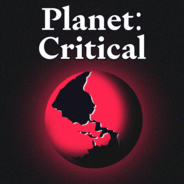Here’s the good news: People can change—quickly.Sometimes it feels impossible to imagine anything other than collapse with the way our energy systems are designed, the corruption in governance, and the financial motives which skew the present system towards profit over everything else. It’s true that if nothing changes, the global system will collapse. But it’s also true that people are capable of amazing feats of imagination and adaptation—especially social imagination. This week I’m joined by Erin Remblance, degrowth advocate and co-founder of ReBiz, an “un/school” designed to equip all people with the worldview and skills to create regenerative and pluriversal post-growth futures. ReBiz offers a core course on social tipping points and Erin joined me to discuss exactly that: What are social tipping points? And, importantly, how do we create them? This is a conversation about technology, economy, imagination, politics and a just transition—because most people are good people. Planet: Critical is 100% independent and community-powered. If you value it, and have the means, become a paid subscriber today! Get full access to Planet: Critical at www.planetcritical.com/subscribe

PolitikWirtschaftTalk
Planet: Critical Folgen
Planet: Critical is the podcast for a world in crisis. We face severe climate, energy, economic and political breakdown. Journalist Rachel Donald interviews those confronting the crisis, revealing what's really going on—and what needs to be done. www.planetcritical.com
Folgen von Planet: Critical
229 Folgen
-
Folge vom 11.04.2024Social Tipping Points | Erin Remblance
-
Folge vom 04.04.2024Global Oil Depletion | Alister HamiltonWhen do you think we’ll run out of oil?2050? 2100? Never? That’s understandable given the IPCC models access to oil until 2100; politicians like Rishi are betting big on North Sea deposits. Petroleum is the life blood of our global economy, and it’s difficult to imagine it drying up. More often, when we talk about transitioning away from fossil fuels, it’s because of the necessity to limit global warming—not because we run out.But a team in Scotland are warning exactly that—we’re running out. Fast. Alister Hamilton is a researcher at the University of Edinburgh and the founder of Zero Emission Scotland. He and his colleagues self-funded research into oil depletion around the world and the results are shocking: We will lose access to oil around the world in the 2030s. They calculated this by establishing the Energy Return On Investment (EROI) and found that whilst there will still be oil deposits around the world, we would use more energy accessing the oil supply than we would ever get from burning it. This is because we’re having to mine further into the earth’s crust to access lower-grade oil. According to their calculations, the oil in the North Sea will be inaccessible—in a dead state—by 2031, and the oil in Norway by 2032. Around the world, oil reserves see the same trend through the 2030s.Petroleum is the life blood, and we haven’t yet built out a different circulatory system to support renewable energy—in less than a decade, the world as know it could crash. © Rachel DonaldPlanet: Critical is 100% independent and community-powered. If you value it, and have the means, become a paid subscriber today! Get full access to Planet: Critical at www.planetcritical.com/subscribe
-
Folge vom 28.03.2024The Origins of Hell On Earth | Carl SafinaI like to think of intellectual discourse as the entangled root network of an ancient tree: everything is connected to everything else. Not so much a linear march of progress but a gnarled and entangled mess from which fruits bear. This is why, despite thousands of years, some ideas don’t travel very far, but double back and loop themselves around other roots, creating something that feels solid, but may be rotten at its core.This week I’m joined by ecologist and writer Carl Safina who has spent the past few years researching that root network of cultural beliefs from all over the world, discovering profound similarities and critical differences. He explains that the main difference between Western thought and most other cultures is the disconnectedness of humankind from nature, and he traces this back to Plato’s philosophy of absolute ideals.This is my second episode with Carl. We first spoke over two years ago when he was deep in the process of researching his latest book, Alfie and Me: What Owls Know, What Humans Believe. That conversation was truly fundamental to my own thinking, so it was a real joy to have Carl back on the show now that the book is out. This conversation goes begins with Plato, takes us through the delightful common threads that weave together most human cultures, and ends with Carl explaining how this rift between humans and nature results in the perverse incentives in our psychotic system today.Planet: Critical is 100% independent and community-powered. If you value it, and have the means, become a paid subscriber today! Get full access to Planet: Critical at www.planetcritical.com/subscribe
-
Folge vom 21.03.2024The Psychological Transition | Jonathan MilleWe need to confront political impossibility.A few months ago, I was sitting on a train bashing out a furious article about the British government’s climate incompetence. The man next to me was in a zoom call on climate change, vigorously shaking his head. I couldn’t help but ask. That’s how I met today’s guest, Jonathan Mille, a researcher at University College London’s Climate Action Unit, where he studies systemic risk and the impact of our interdependent global systems on climate change response. Jonathan focuses much of his attention on the physical and political possibility of the energy transition, and in today’s episode we discuss that exact tension between what is physically possible and what is politically possible. We explore the narrative challenge we face as a society, along with the distinct knowledge gaps found in industry, policy circles and business which create blind spots of psychological vulnerabilities, impeding the necessary psychological transition. © Rachel DonaldPlanet: Critical is 100% independent and community-powered. If you value it, and have the means, become a paid subscriber today! Get full access to Planet: Critical at www.planetcritical.com/subscribe
